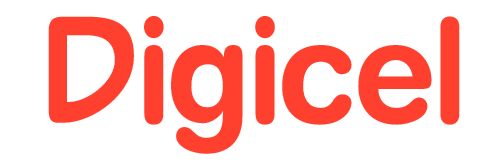
Digicel today called upon the Telecommunications Authority of Trinidad and Tobago (TATT) to insist upon the production of an actual binding share sale/purchase Agreement proving the actual divestiture by Cable and Wireless Communications (CWC) of its 49% shareholding in TSTT before any approval is granted for the proposed merger between CWC and Columbus in Trinidad.
While Digicel broadly welcomes the position adopted by TATT in its decision published on 12 March, Digicel remains concerned that CWC will urge upon TATT the fudged approach of “everything will be alright on the night” by applying pressure for approval for the merger before any real agreement to divest their 49% in TSTT has been reached.
In order for TATT’s decision to have any validity or actual impact in terms of preserving competition, international best practice and plain common sense dictates that what must occur prior to regulatory approval being provided in Trinidad and Tobago is unequivocal proof of an actual binding commitment to divest the shares to a named third party. Some vague assurance or commitment that a divestment will occur at some undefined date in the future simply will not suffice. It should not be open to CWC to simply kick the can down the road based on some weak promise to comply with divesting at some possible future point in time.
In its decision of 12 March, TATT unequivocally stated that the proposed merger would likely be expected to ‘….result in adverse effects on competition in the markets for fixed voice, broadband, pay TV and related wholesale services in Trinidad and Tobago…’ and that it ‘…would likely lead to a significant impairment of competition in the domestic communications market in Trinidad and Tobago…’.
As a consequence, TATT ruled that a complete divestment of CWC’s 49% shareholding in TSTT would be required. However, the TATT decision is unclear as to what is actually required before approval can be granted. It is Digicel’s clear position, which is supported by common sense and logic, that a binding Share Sale/Purchase Agreement with a named third party for the 49% must be produced by CWC. Such proof must be a clear condition precedent to any merger approval.
CEO of Digicel Trinidad and Tobago, Sacha Thompson commented ‘….While we support broadly the position adopted by TATT, we would strongly urge that the clear spirit of the decision, requiring as it does a clear and unambiguous divestment by CWC of the 49% is actually delivered in an open and transparent manner rather than loosely committed to by CWC in some nod and a wink fashion to come down the road. The people of Trinidad and Tobago must see that the divestment is actually going to occur before this merger is allowed to happen. It is only with this required proof of an actual divestment that the TATT decision can have any actual substantive impact in terms of mitigating what are the clearly understood anti-competitive effects of the proposed merger in Trinidad and Tobago…’
Digicel notes recent media comment from CWC where they have openly stated that it was always recognised by them that such a divestment of shares in TSTT would absolutely have to take place before any merger with Columbus would be allowed. As such, Digicel can only assume that arrangements to actually divest of the shares to a third party must already be well advanced and that proof of an actual divestment of the 49% to a third party can be furnished to TATT by CWC without undue delay. This must be done in an open, transparent manner.

